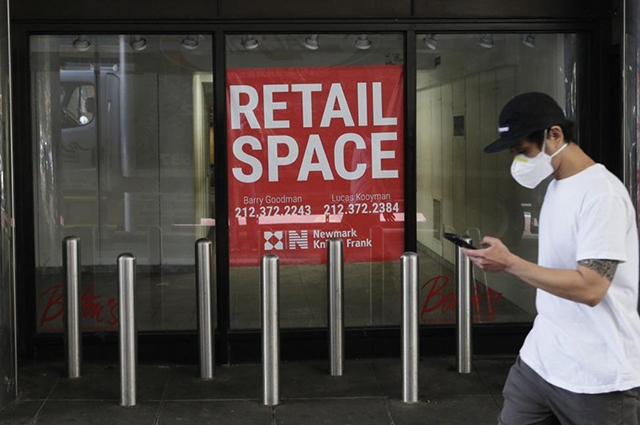COVID-19 – Economies around the World Brace for Recession
Coronavirus has had a huge impact on social and economic norms around the world. This week, OECD, a Paris-based think tank, released their biannual Economic Outlook, outlining their economic predictions.
The COVID-19 pandemic is the biggest global health crisis in living memory, which has triggered the most severe economic recession since the Great Depression of the 1930s. Millions of workers have already lost their jobs, with companies bracing for further closures and job losses.
OECD based their economic predictions on two possible scenarios: a single wave of infections, and a second, which could trigger a return to lockdown.
In the event of one wave, OECD expects global economic activity to fall by 6%. The UK could suffer a 11.5%, followed by France, Italy, and Spain. In total, the Euro area could see a loss of 9.1% compared to the same period last year. Strong European economies will also notice the effects, with Germany and Sweden’s economies predicted to shrink by 6.6% and 6.7% respectively.
If countries are hit by a second wave of infections, then the economic outlook is even more bleak. In this case, Spain’s economy is expected to shrink by 14.4%, followed closely by France, Italy, and the UK. The Euro area’s economy could fall by 11.5%.
Economies should recover from the pandemic’s impact. However, they are not expected to return to the same level as the fourth quarter of 2019 for at least two years. Income growth is predicted to be lost for the next five years.
The economic impact of the pandemic is already being felt around the world. Unemployment rose sharply in the first quarter of the year, and will continue to rise, according to OECD. Unemployment in Spain and the US is expected to reach 19% and 17.5% respectively in the second quarter of 2020, in the event of one wave of infection. A second infection could drive unemployment as high as 25% in Spain.
Among those industries hardest hit by the pandemic are hospitality, tourism and aviation. Retail has also suffered. This week, Inditex, the owner of the Zara clothing brand, announced that it would close up to 1,200 stores over the next two years as it shifts to an online business model. The company recorded a net loss of €409 mln in the first quarter of 2020.
To ensure economic recovery, OECD recommends governments invest in their healthcare systems and build their supply of medical equipment. Testing, tracking, tracing and isolating virus outbreaks is also essential. The development of a vaccine and treatments could also soften the economic blow.
In addition, governments should aid businesses to transition into new economic activities, accelerate digitalization, and facilitate rapid form restructuring, whilst also preparing for financial turmoil by building more resilient supply chains, keeping interest rates low, ensuring spending and taxation policies support economic activity, and investing public finances in people’s well-being.
By Amy Jones
Image source: John Angelillo/UPI











